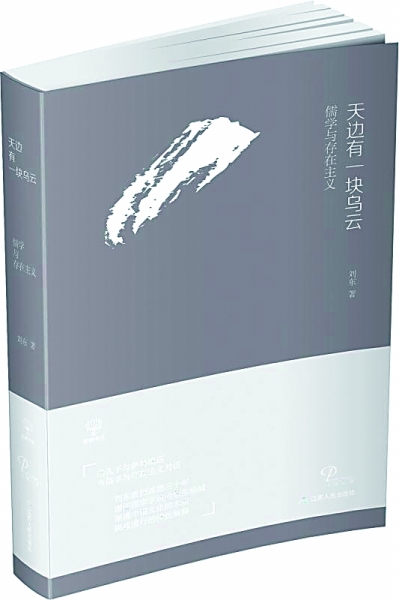Understanding vitality of Confucianism

A Dark Cloud at the Edge of the Sky: Confucianism and Existentialism
The philosophical legacy handed down to each age differs, and each age faces new challenges. So too have philosophers of each age interpreted the thoughts of Confucius differently.
In his recent work, A Dark Cloud at the Edge of the Sky: Confucianism and Existentialism, Liu Dong, a professor from Tsinghua University, finds his way back to the original fields where Confucian thought was derived, before eventually identifying the core ideas of Confucian theory.
Historian Qian Mu (1895-1990) once asserted that the idea of “harmony between heaven and humanity” is the most ancient and valuable proposition of Chinese culture. His assertion was supported by many modern and contemporary Chinese thinkers. Notably, the evolution from the idea of “disconnecting heaven and earth from humanity” to the idea of “harmony between heaven and humanity” is of great academic charm. Liu in his new book gives a unique explanation from a new perspective. He does so by exploring the meaning of the basic characteristics of Confucian culture.
There is a debate over whether the notion “disconnecting heaven and earth from humanity” refers to disconnection or harmony between heaven and humanity. Unlike most scholars, Liu does not consider this a binary issue. “It is better to unite these two sides so that we can grasp and comprehend it more comprehensively,” Liu writes. “That is to say, on the one hand, we realize that we are in a difficult situation where heaven and earth are disconnected from us; On the other hand, we aspire for the state of ‘harmony between heaven and humanity.’
The former situation serves to outline and alert the latter, while the latter also relaxes and comforts the former situation [that we find ourselves in]. In this way, an awareness of ‘being prepared for the unexpected’ and a spirit of ‘joy and happiness’ coexist in the Chinese cultural consciousness. This awareness and spirit inspire, support and transform each other as well as check, detoxicate and supplement each other. By grasping this, the character and basis of this great culture can be comprehended more fully.”
Liu argues, “It is exactly because heaven and humanity cannot unite as one at present that the unforseeable dark cloud will haunt us permanently. Hence, our life journey will also be open to uncertain meaning permanently. It is exactly because of the absence or the deletion of that divine pivot that Confucians and (atheistic) existentialists feel a similar tension and jeopardy.” Between the fear of “being disconnected from heaven and earth” and the hope for “harmony between heaven and humanity,” the two fundamental emotions of the human race—fear and reverence—find their home.
(edited by CHEN ALONG)
